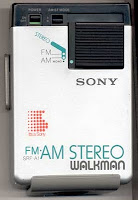Dick Irvin was interviewed during the intermission of one of the Pens-Habs games at the Bell Centre last week. He mentioned how he found it amazing to see the change in the hockey culture in Montreal nowadays. Finishing 8th seems to be something to cheer about now...
It's true that for decades, making the playoffs was never an issue for Montreal hockey fans. The first round was hardly worth going insane over. But now nearly an entire generation of Montrealers have grown up watching very mediocre hockey. Since 1993, the Canadiens have not made it past the second round of the playoffs.
Teams used to come to Montreal and be intimidated by the old Forum and its ghosts. They now come into the Bell Centre and are intimidated by its amazing large crowds. It took a while for it to happen, but it has been unmistakable during these playoffs. The crowd used to be a factor at Expo games, when they would stand and make the Olympic Stadium about as loud a venue as you were going to find. That may be hard to believe unless you were there to experience it. Montreal sports fans are something else, especially since the days of being spoiled have long since past.
And for any english-speaking Montreal hockey fan growing up during the 1980s, Dick Irvin was the voice of the Habs. I'm sorry that I missed the time he spent on TV with Danny Gallivan. By the mid-80s, I don't even recall if he had a permanent radio colour man by his side. I kind of remember rotating local guest analysts for most road games at some point when they were still broadcast on CFCF radio.
Although Dick Irvin was a CFCF employee, he would magically appear on CBC 6 every Saturday night and during the playoffs to do play-by-play or colour of Habs games. Those were the days when the Canadiens were on Hockey Night in Canada every week, even if the game was only seen in Quebec.
There was no big splash for Hall of Fame broadcaster Irvin when he retired. No doubt that was his choice. It's always great to see him make an appearance on Hockey Night in Canada. It brings back memories of the way it used to be... Back in those days, you had to depend on radio, because there were only a limited number of games on television. You would have to envision the players skating left-to-right on your radio dial. Even the radio dial seems to have disappeared... Hockey on the radio is so much different than baseball on the radio. It's mostly action and re-action, with nowhere near the amount of time-filler, stage-setter or time for reminiscing - those things are best left for the intermissions.
 Still, FM continues... It's free, but you are not in control. Music on AM is a pretty bad idea, as a lot of stations have discovered in recent years. The sound quality for music on AM is just not there. Interestingly enough, sound seems to be a lot better on the Internet feeds of some AM stations than on the stations themselves. We can also remember something called AM Stereo, although I've never actually used an AM stereo receiver. How well did that work? It did little if anything to hurt the FM dial, that's for sure.
Still, FM continues... It's free, but you are not in control. Music on AM is a pretty bad idea, as a lot of stations have discovered in recent years. The sound quality for music on AM is just not there. Interestingly enough, sound seems to be a lot better on the Internet feeds of some AM stations than on the stations themselves. We can also remember something called AM Stereo, although I've never actually used an AM stereo receiver. How well did that work? It did little if anything to hurt the FM dial, that's for sure. 



